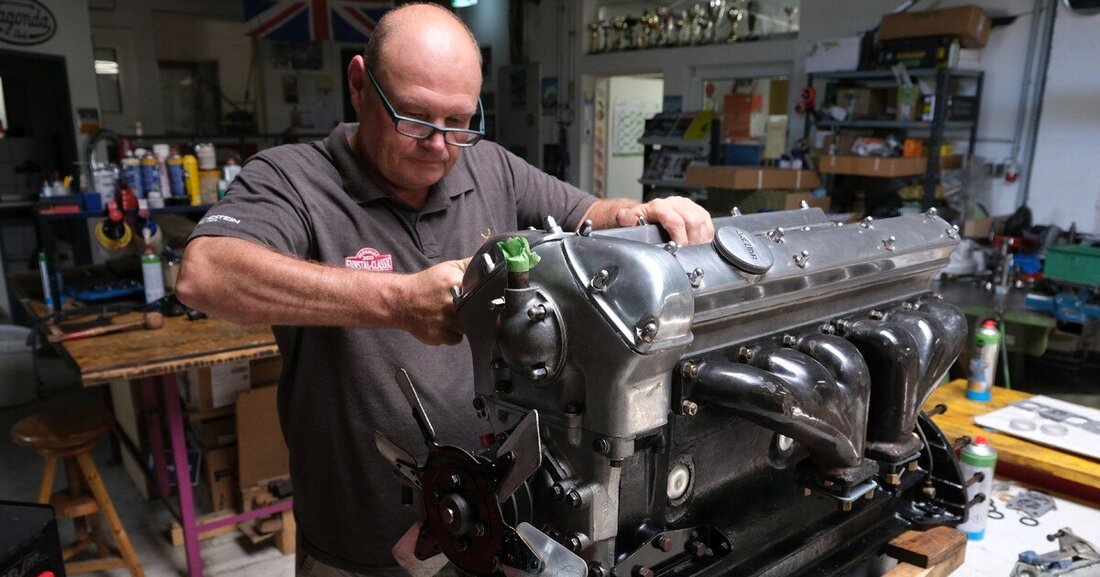Gasoline in the blood
Andreas Fojtik runs a car workshop in Bisamberg for all brands with a focus on classic car restoration.

Gasoline in the blood
“Unlike modern cars, vintage cars have a personality, they talk to you,” says Andreas Fojtik, describing the fascination of historic sheet metal that is moved by combustion engines. The 60-year-old master mechanic and motorsportsman sees that these personalities often show capricious sides, among other things, in his everyday car, a Triumph Stag from the 1970s. “It's undoubtedly one of the ten worst cars in the world, but it's a lot of fun to drive,” he smiles. And immediately fires a broadside against the alleged technical progress in engine construction: "With its 3.5 liter eight-cylinder, the Stag needs around 7.5 liters of fuel per 100 kilometers on the highway - modern sports cars are not much more economical after 50 years of development." The self-confessed petrolhead is also skeptical about the trend towards electric cars. The current models are too heavy, too short of range, too expensive and also extremely dangerous. The car yard is open to all brands and also carries out §57a inspections, but as long as Fojtik is in charge, no electric cars will come into the company. As head of the family, he founded the company in Vienna in 1989 and moved to Bisamberg in 2017. His wife Irene was always at his side, and his three sons Alexander, Filip and Florian were not far from the tribe either - they all learned automotive technology and now work in the family business.
Andreas Fojtik proudly leads a tour of his extensive workshop, where, among other things, he works on classics, of which there is only one left in the world. These include a Rolls Royce EX-17 from 1927, a Gräf und Stift SR45 from 1924 and a 104-year-old Ballot 3.0, the first Formula 1 winning car in the world. “We have the honor of being able to repair these cars for money,” says a happy Fojtik, who enjoys the highest reputation in classic car specialist circles with his perfectionist work ethic. “Unfortunately, it’s not always as romantic as it sounds,” sighs the classics master. Procurement of spare parts is becoming more and more difficult, and many components that can no longer be found have to be remade by hand using a lathe and milling machine. Despite his rejection of electromobility, Andreas Fojtik does not have a bad conscience when it comes to climate protection and sustainability, on the contrary. “We are certainly the most sustainable company within a 50-kilometer radius,” he says, “because we refuse the throwaway mentality and repair things that already exist.”

 Suche
Suche
 Mein Konto
Mein Konto